SAL Heavy Lift, one of the world's leading maritime heavy lift and project cargo carriers, has signed building contracts for four firm plus two optional new generation heavy lift ships with Wuhu Shipyard, China. This joint newbuilding programme involving SAL Heavy Lift and partner Jumbo Shipping is called Orca Class.
“The Orca vessels are setting new standards in global heavy lift shipping. They represent the new benchmark both in terms of their technical capabilities and modern climate-friendly propulsion systems,” says Dr. Martin Harren, Owner and CEO of SAL Heavy Lift and the Harren Group. “The ships will be the most efficient vessels in their class with consumption and emission figures far superior to any existing heavy lift vessel today. As a signatory to the ‘Call to Action for Shipping Decarbonization’, our Group has committed to the decarbonisation of shipping activities by 2050. I am proud that this newbuilding order shows how we are keeping our promise for significant, concrete action.”
The vessels were developed in close cooperation with SAL's joint venture partner, Jumbo Shipping (Schiedam, The Netherlands), another true heavyweight in the industry. Jumbo Shipping Owner Michael Kahn stresses: “One can say that these ships mark the beginning of a new era for the Jumbo-SAL-Alliance – no exaggeration. I would like to take this opportunity to thank the newbuilding design team at SAL for their great cooperation. I am very impressed with their passion and technical expertise. The ships will help bring us even closer together.”
The vessels measure 149.9 m x 27.2 m and provide a capacity of 14,600 dwt. Despite their compact outer dimensions, the vessels have a box-shaped single cargo hold with the largest dimensions in its class. Provided the hatch covers with a capacity of 10 t/m² are not utilised for stowing super-heavy deck cargoes, such as 3,000 t cable carousels, the vessels can accommodate over-height cargo in the hold and sail with open hatch covers up to full scantling draft.
In addition to the optimised hull design, the Orca vessels will have an innovative propulsion system consisting of compact and efficient main engines and a diesel-electric booster function. Compared to other heavy lift vessel designs, this hybrid setup features the widest available range of economic speed settings and redundancy.
The vessels are equipped with dual-fuel engines, which means that they can use methanol as an alternative fuel. If green methanol becomes available in key ports as anticipated towards the end of the decade, the Jumbo-SAL-Alliance will be able to offer their customers carbon-neutral transport solutions – a defined environmental protection goal that both companies share. For more information on SAL and Jumbo's sustainability goals, please see the latest Harren Group sustainability report – now available online.
NaMKü (“Sustainable Modernisation of Coastal Vessels”) funding from the German Federal Ministry for Digital and Transport allows SAL to utilise pioneering technology in the vessels innovative power train with the target on highest efficiency and significant emission reduction. Among other eco-friendly effects, this will lower NOx emissions 10 percent below the IMO Tier 3 level while undercutting EEDI phase 3 limits for CO2 emissions by 21 percent.
Source: SAL Heavy Lift
The opinions expressed herein are the author's and not necessarily those of The Xinde Marine News.
Please Contact Us at:
media@xindemarine.com

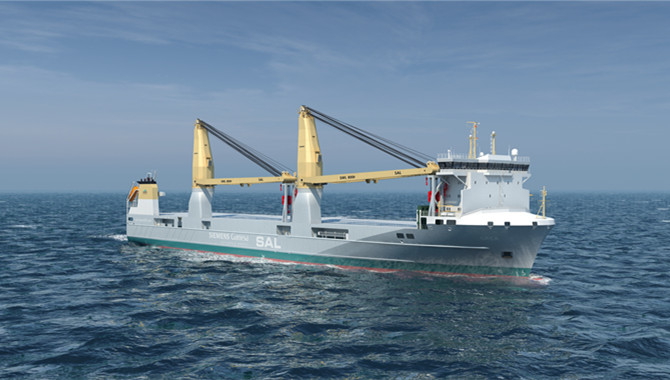
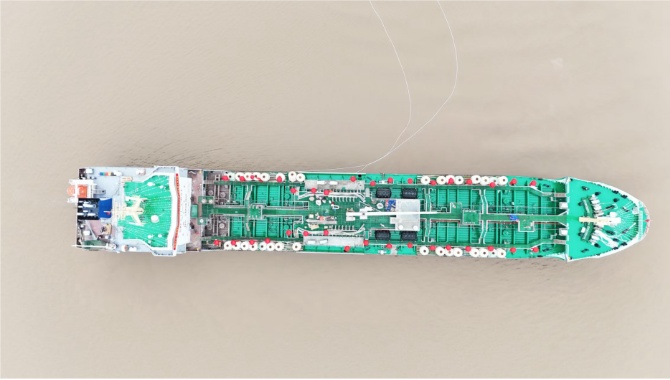 China Launches First Nationwide Methanol Bunkering
China Launches First Nationwide Methanol Bunkering 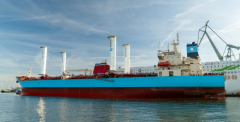 bound4blue completes first eSAIL® installation und
bound4blue completes first eSAIL® installation und  Deck-Capacity Pricing: Why the Forward-Superstructu
Deck-Capacity Pricing: Why the Forward-Superstructu 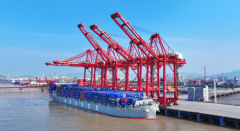 Ningbo Ocean Shipping Announces Order for Four 4,30
Ningbo Ocean Shipping Announces Order for Four 4,30 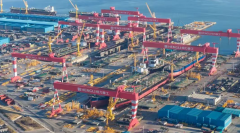 The "Norwegian King of Shipping" Orders Two VLC
The "Norwegian King of Shipping" Orders Two VLC 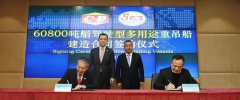 The opportunity has arrived. COSCO SHIPPING Special
The opportunity has arrived. COSCO SHIPPING Special